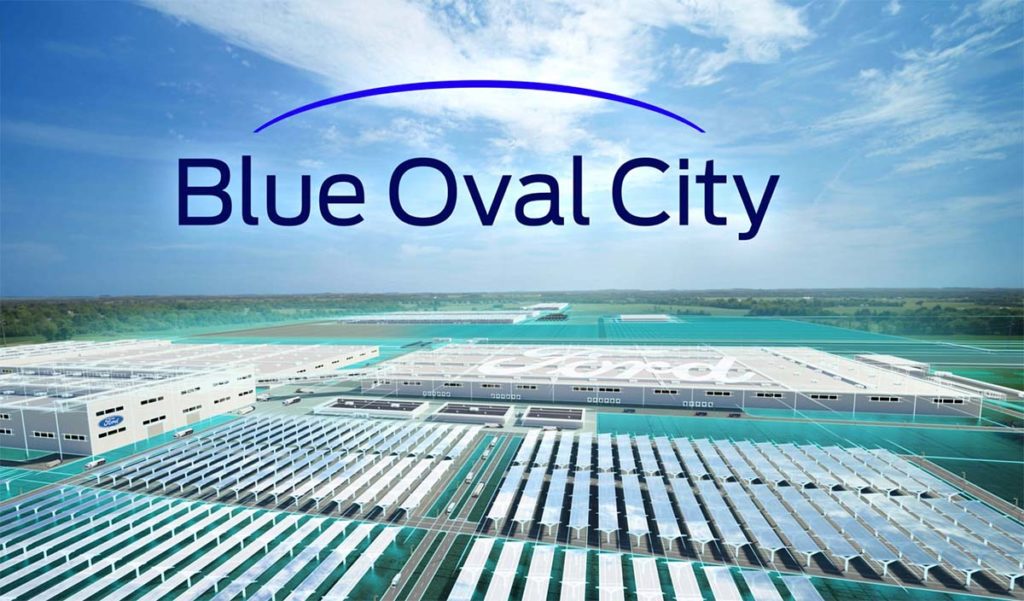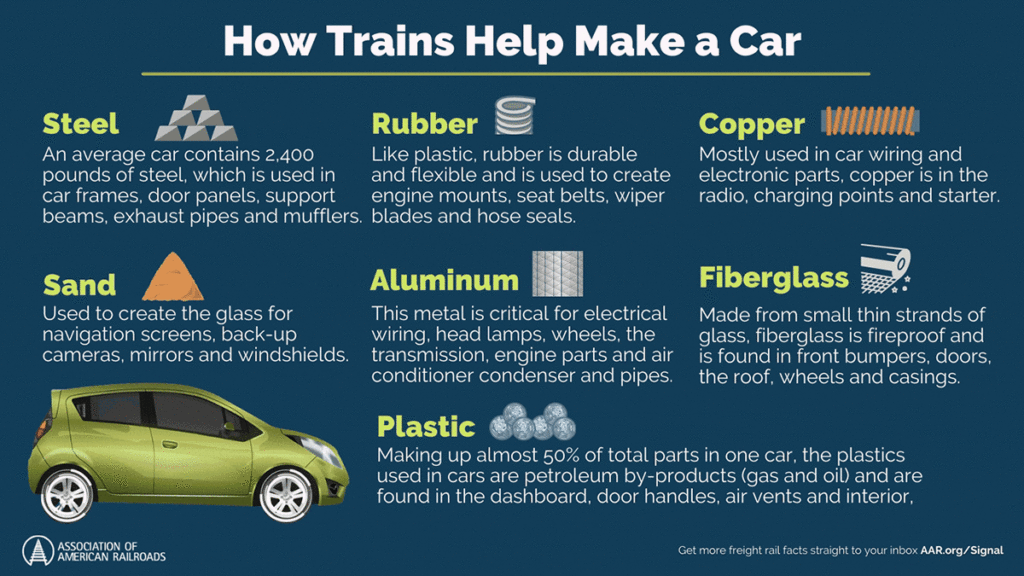The major announcement Tuesday from Ford Motor Company that it will invest $11.4 billion into the creation of two new mega campuses in Tennessee and Kentucky is a huge boon for the state and local economies. It also demonstrates how freight rail access is a key factor for manufacturers as they pursue sustainable and innovative expansion.
The first complex will be constructed on a CSX-served site in west Tennessee known as the Memphis Regional Megasite. The “Blue Oval City” campus will build next-generation electric F-Series pickups and advanced batteries and is expected to support 6,000 jobs locally.

Ford will build its second campus—featuring twin battery plants—in central Kentucky on the existing Glendale Megasite, a certified CSX Select Site. The $5.8 billion investment will build a 1,500-acre battery manufacturing campus expected to support 5,000 local jobs.
The site’s designation as a CSX Select Site means that it meets criteria including, “proximity to a high capacity interstate highway, workforce availability and all the utility infrastructure and capacity required for industrial development and expansion.”
Rail access will be an important feature of both Ford campuses, aligning well with the company’s “longer-term goal to create a sustainable American manufacturing ecosystem.” The Tennessee assembly plant at Blue Oval City, for example, will be carbon neutral with zero waste to landfill when production begins in 2025 according to Ford.
Railroads, for their part, are the most sustainable way to move freight over land—about 3-4 times more fuel efficient than trucks. That means greenhouse gases fall by 75% when freight is moved by rail rather than trucks. The freight moved by rail in Tennessee and Kentucky combined in 2019 kept 24.4 million truckloads off the roads in those states and reduced greenhouse gas emissions by over 6 million tons.
The announcement includes Ford’s plans to invest $525 million across the U.S.—including $90 million in Texas specifically—to train skilled technicians to service its electric zero-emission vehicles. It also comes on the heels of Ford announcing plans in early September for an additional $250 million investment at three Michigan facilities.
Railroads are critical connectors for the U.S. auto industry, serving most of the 70-plus automobile manufacturing plants across North America moving nearly 75% of America’s new cars and light trucks.

Trains don’t just move finished vehicles. They’re involved in every stage of auto manufacturing, from hauling the raw iron ore and coke for steel to delivering finished auto parts. In recent years, U.S. Class I railroads have hauled an average of 1.4 million carloads of assembled motor vehicles.
For manufacturers like Ford and the communities that surround them, efficient rail connections are a competitive advantage and catalyst for growth. Rail-served businesses everywhere rely on railroads to continue investing in the rail infrastructure that delivers for our economy.
The Ford announcement is a testament to the innovative spirit of U.S. manufacturers. It’s also a testament to the critical role rail will play in a more sustainable supply chain.


